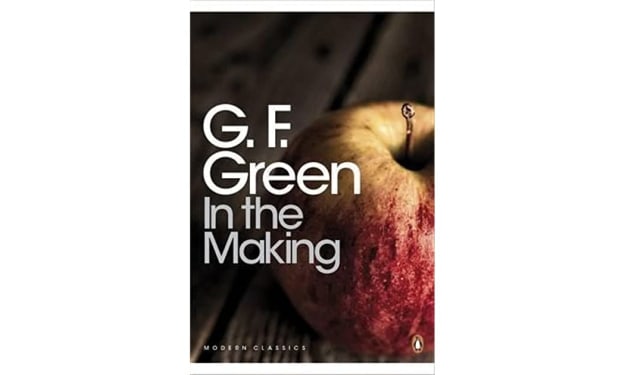A Filmmaker's Guide to: Nietzsche's Philosophies
Film Studies (Pt.77)

In this chapter of ‘the filmmaker’s guide’ we’re actually going to be learning about literature and film together. I understand that many of you are sitting in university during difficult times and finding it increasingly hard to study and I understand that many of you who are not at university or not planning on it are possibly stuck of what to do, need a break or even need to catch up on learning film before you get to the next level. This guide will be brief but will also contain: new vocabulary, concepts and theories, films to watch and we will be exploring something taboo until now in the ‘filmmaker’s guide’ - academia (abyss opens). Each article will explore a different concept of film, philosophy, literature or bibliography/filmography etc. in order to give you something new to learn each time we see each other. You can use some of the words amongst family and friends to sound clever or you can get back to me (email in bio) and tell me how you’re doing. So, strap in and prepare for the filmmaker’s guide to film studies because it is going to be one wild ride.
Nietzsche's Philosophies

What are they?
Nietzsche's philosophies include the following statements if we were to simplify them as much as possible:
- Theories on human existence not being as valuable as one believed
- The fact that religion is not at all truth, but instead a list of rules to control people
- If religion were to end in modern society, then modern people will be far smarter, far more able to control their own lives and far better off psychologically
- Humans can control their own purpose if they transcend religion and other belief systems
- At the moment in modern society, free will does not exist
These are only some of the theories and there are much more on terms of expansion. But in literature, Nietzsche's philosophies have since been used to contemplate deeper themes in modernist literature. For example: nihilism is contemplated in the literature of Jack Kerouac. His dislocation in "On the Road" leads him to go out searching for his own destiny and as he attempts to control his own free will, he notices that his life has less value than he initially thought. Other works that contemplate Nietzsche's philosophies include but are not limited to:
- Kaddish by Allen Ginsburg
- The Great Gatsby by F. Scott Fitzgerald
- The Sun Also Rises by Ernest Hemingway
- The Catcher in the Rye by J.D Salinger
- In Cold Blood by Truman Capote
- The Bell Jar by Sylvia Plath
- Invitation to a Beheading by Vladimir Nabokov
- Gravity's Rainbow by Thomas Pynchon
- Blood Meridian by Cormac McCarthy
- Infinite Jest by David Foster Wallace
What about in film?

Film is fascinated with Nietzsche's philosophies and often includes them in original scripts. There are many films which try to make use of Nietzsche's philosophies on existence as opposed to the ones on religion and try to give some extended metaphors regarding narcissism of one's own existence. Another extended metaphor that is popular is legacy and the fact that the main character is obsessed with leaving them - thus, another aspect of concentrating on the existence of the individual. Something that Nietzsche's philosophies critique. Aspects such as depression, nihilism and existentialism are often explored in films that claim to be based within Nietzsche's philosophies. So check them out because you would really want to see how the filmmaker incorporates them into the aspects and traits of the main character, the themes, tropes and motifs regarding the plot of the movie. Here are some films you could watch to learn more about this:
- One Hour Photo
- The Hours
- Eyes Wide Shut
- Falling Down
- Trainspotting
- Jacob's Ladder
- Fight Club
- Synecdoche, New York
- The Game
- The Stanford Prison Experiment
- Black Swan
- Limitless
- Joker
- The Killing of a Sacred Deer
- Martha, Macy, May and Marlene
Okay then, let's have a look at some further reading that you can do to learn more about Nietzsche's philosophies.
Further Reading:
- Nietzsche, F (2003). Beyond Good and Evil. UK: Penguin Classics
- Nietzsche, F (2009). Ecce Homo: How to Become What You Are. UK: Oxford World's Classics.
- Nietzsche, F (2008). On the Genealogy of Morals A Polemic. By way of clarification and supplement to my last book Beyond Good and Evil. UK: Oxford World's Classics.
- Nietzsche, F (2018). The Joyous Science. UK: Penguin Classics
- Nietzsche, F (2017). The Will to Power. UK: Penguin Classics
- Nietzsche, F (1974). Thus Spoke Zarathustra. UK: Penguin Classics
- Stern, T (2019). The New Cambridge Companion to Nietzsche. UK: Cambridge University Press
About the Creator
Annie Kapur
200K+ Reads on Vocal.
English Lecturer
🎓Literature & Writing (B.A)
🎓Film & Writing (M.A)
🎓Secondary English Education (PgDipEd) (QTS)
📍Birmingham, UK






Comments
There are no comments for this story
Be the first to respond and start the conversation.